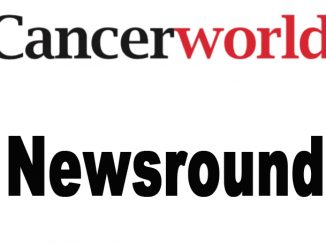 The topic of cancer survivorship is getting a lot of airing these days. There have been conferences dedicated to the topic – a sure indicator of interest.
The topic of cancer survivorship is getting a lot of airing these days. There have been conferences dedicated to the topic – a sure indicator of interest.
Professor Sir Mike Richards, England’s first National Cancer Director, led the Cancer Reform Strategy in 2007 was probably the first to define the issue. What the 2007 report said was:
As more patients become long term survivors of cancer it is increasingly important that they should be provided with the assistance they need to resume as normal a life as they can.
It is one simple paragraph which led to a long review of needs and opportunities. It was followed by the Cancer Survivorship Initiative whose main conclusions are being carried forward by Macmillan Cancer Support and NHS England. The issue and the conclusions are not exclusive to the UK.
While we now understand a lot more about survival, as a concept, we are also realising how wide the range of needs is and that some of the problems which went largely unnoticed ten years ago are now understood much better. There are some clinically important messages that have emerged and we should be listening to those (too few) clinicians who are actively trying to move things forward. As a patient I have come to the conclusion that ‘survival’ is a condition which should be formally diagnosed. ‘Survivorship’ is the partnership between doctors, nurses and other healthcare professionals, working with each patient, which addresses the condition ‘survival’.
Why a formal diagnosis? Don’t we have enough of them already?
My case is that the patient may need a whole range of medical and supportive care. These needs should be identified using a holistic analysis of each individual patient. Among the key issues are side effects management, support and advice on such physical matters as fatigue or loss of sexual function, ongoing pain (especially nerve pain), psychological care (in extreme cases patients can have symptoms of PTSD), fast access for suspected recurrence, advice on a range of issues like nutrition, exercise, sleep problems and low level anxiety. Much of the treatment for ‘survivorship’ is about self-management so helping people learn to self-manage is an important function in the process.
How would you ‘diagnose’ survival?
It may be argued that patients currently being treated or those at a high risk of recurrence/metastasis (however that risk is analysed) should not be looked at in this way. Another suggestion is that the 5-year point of ‘cure’ might be an appropriate moment for survivorship care to start. I would argue that every patient is a survivor until they die – whether that death is from cancer or some other cause. The needs are similar and the holistic tools used to help identify what an individual’s needs are, would be the same for every patient. It is how that information is used which might differ.
This takes us to another critical question. Who should do the diagnosing?
Up to this point everyone has been slowly nodding their head in agreement, and making the assumption that someone else would be doing it. Should it be the doctor in charge of the cancer treatment, who with patients not needing treatment may be feeling that he has done all he can? Should it be the nurse who works with the cancer team, assuming there is one? Should it be the family doctor who is once again taking care of the patient? Should the ‘third sector’ take responsibility?
There will be no-one unless a conscious decision is taken by a clinical team, a hospital, a healthcare funder or a healthcare system.
This is an area where the voluntary ‘third sector’ has been doing a wonderful job in many countries and has built up a range of experience. However, it lacks the depth of resources and the funding to do this proactively for every patient. Currently support groups and charities rely on patients discovering them – they are reactive and they are not clinical. They cannot fill a very real gap in the provision of care. Recognising the ‘gaps’ in your own care and finding the ways of resolving them for yourself, is something of a hidden industry, fuelling huge numbers of internet forums and discussion groups. While these have some value its just not good enough.
Patients deserve better than this.
Conferences to talk about survivorship are all very well, they air the issues and introduce people to the topic. However the need is real, it is growing and it is now. The healthcare sector must start acting because creating the necessary change will take time. The challenge is taking the huge step of seeing survival as a diagnosable and treatable condition.





